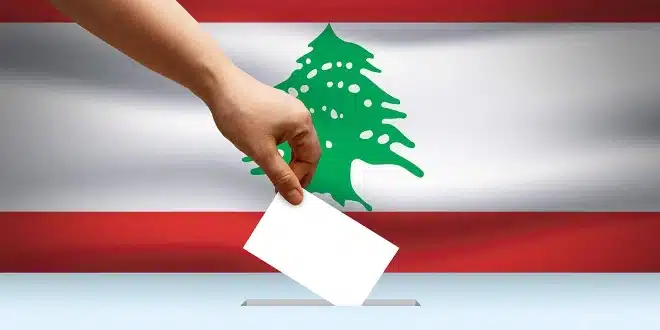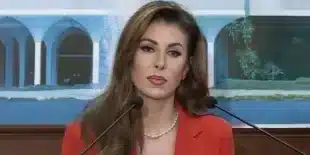Polling began on Sunday in the northern regions of Lebanon for municipal and mayoral elections, marking a significant democratic event in the country’s recovery following more than a year of war with Israel. These local elections are the first nationwide vote since the formation of a new government and have seen increased security incidents compared to previous rounds.
By mid-morning, voter participation varied across districts, with Batroun recording the highest turnout at 13.23%, while Tripoli registered the lowest at 3.49%. Other figures included 11.70% in Akkar, 9.28% in Zgharta, 7.96% in Bsharri, 10.34% in Minieh-Dinniyeh, and 9.86% in Koura. Despite being local in scope, the elections have drawn considerable attention due to the broader political and sectarian implications in Lebanon’s multi-confessional system.
The Interior Ministry reported an uptick in confrontations throughout the day. Interior Minister Ahmad al-Hajjar, speaking from Tripoli, expressed concern that rising enthusiasm among supporters had turned volatile in several areas. Security forces and army units were deployed to manage disturbances and preserve order at polling stations.
In Batroun, an electoral alliance composed of the Free Patriotic Movement and the Lebanese Forces is contesting the election. In Zgharta, a list endorsed by the Marada Movement faces competition from a civil society slate reportedly backed by Members of Parliament Michel Mouawad and Michel Doueihi. These rivalries highlight the intersection of national party dynamics with local governance battles.
Context of Political Transition and Institutional Reconstruction
This round of municipal elections is especially significant as it follows a turbulent period in Lebanese politics. For the first time since 2016, citizens are casting ballots in local elections after multiple delays, most recently in April 2024, due to the military conflict with Israel. That conflict escalated into a full-scale bombing campaign and ground assault before a ceasefire was reached two months later.
Lebanon’s newly formed leadership includes President Joseph Aoun, elected in January, and Prime Minister Nawaf Salam, who assembled a government in February. Their appointments ended a prolonged political vacuum that lasted over two years, during which Lebanon’s fragile institutions struggled with overlapping crises.
Aoun has underscored the importance of the elections in demonstrating that Lebanon is moving forward with institutional rebuilding. The current administration has committed to reforms as part of efforts to regain public trust, attract international aid, and stabilize an economy battered by a five-year financial collapse. Additionally, the government has reiterated its goal of asserting exclusive control over arms, signaling a shift in security governance.
Hezbollah’s Weakened Position and Continuing Israeli Strikes
The elections also reflect the shifting power landscape in the aftermath of the Israel-Hezbollah conflict. Hezbollah, which suffered substantial losses including the death of key leaders such as Sayyed Hassan Nasrallah, has seen its influence diminished. Its strongholds in the south, east, and southern suburbs of Beirut were heavily targeted during the hostilities.
Despite the ceasefire, Israel has continued to carry out military operations in Lebanon and maintains a presence in five contested zones it regards as strategically important. These ongoing tensions add a layer of uncertainty to Lebanon’s security environment as voters attempt to re-engage in civic life.
Next Voting Rounds and Broader Implications
Voting in north Lebanon will conclude at 7:00 p.m. Sunday. The electoral process will continue in other parts of the country, with residents of Beirut and the Bekaa Valley scheduled to vote on May 18. Citizens in the war-ravaged southern regions will head to the polls on May 24.
While religious and political affiliations continue to shape Lebanese politics, municipal elections offer an opportunity for local concerns and community-based priorities to take precedence. The success of these elections may provide a modest but important step toward institutional recovery and the reassertion of democratic governance in a country still emerging from crisis.


